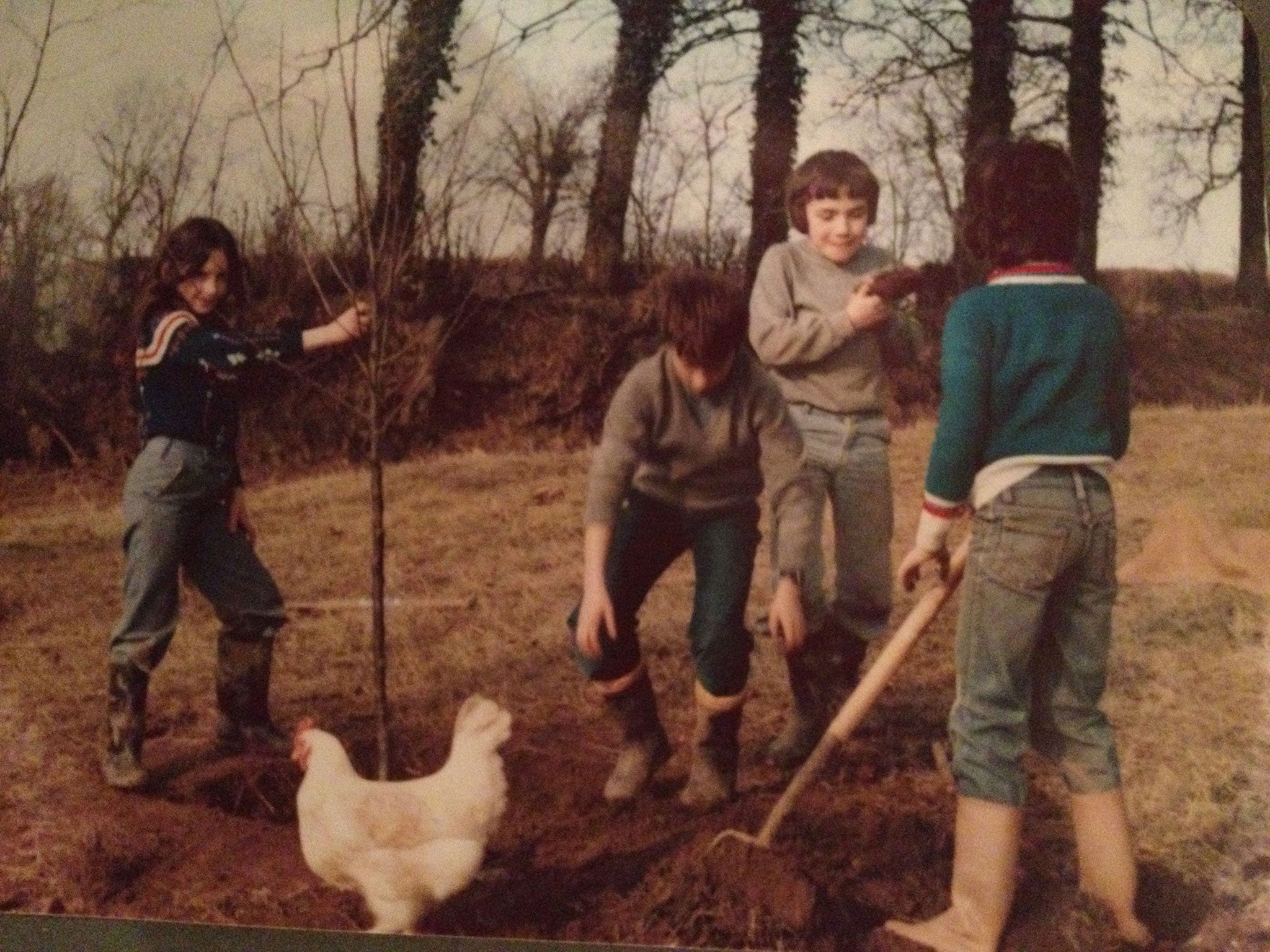Michael Morpurgo's charity farm celebrates its 40th anniversary
Morpurgo started the farm in the 1970s so that city kids could try country life. Nick Duerden recalls his own week of wonder and wellies

Your support helps us to tell the story
From reproductive rights to climate change to Big Tech, The Independent is on the ground when the story is developing. Whether it's investigating the financials of Elon Musk's pro-Trump PAC or producing our latest documentary, 'The A Word', which shines a light on the American women fighting for reproductive rights, we know how important it is to parse out the facts from the messaging.
At such a critical moment in US history, we need reporters on the ground. Your donation allows us to keep sending journalists to speak to both sides of the story.
The Independent is trusted by Americans across the entire political spectrum. And unlike many other quality news outlets, we choose not to lock Americans out of our reporting and analysis with paywalls. We believe quality journalism should be available to everyone, paid for by those who can afford it.
Your support makes all the difference.One day, back in the Swinging Sixties, Michael Morpurgo, future children's laureate, had a lightbulb moment: he and his wife Clare, both increasingly disillusioned schoolteachers, would set up a rural farm somewhere and invite city children to come and stay, and also to work on it.
"We had both been immersed in the countryside while growing up, and valued it tremendously," Morpurgo says. "And we thought it was the right of every child, every urban child in particular, to have a similarly bewitching experience."
The idea remained a flight of idealistic fancy until Clare's father, Allen Lane, the founder of Penguin, died in 1970. Suddenly, she had the means. "And so we decided to put our money where our mouths were," she says. "To take the risk, set up a charity, buy a house in Devon, make a partnership with a real working farm next door, and see what happened."
The initiative Farms for City Children was launched early in 1976, and open to urban and underprivileged schoolchildren nationwide.
"I suppose we must have looked rather patronising at the time," says Morpurgo, "these two rather fresh-faced, silver-spoon people convinced our idea could help. But we really were convinced. And it's such an intense experience for the children: you are often working in cold conditions, in discomfort, with great sacks of sheep feed over your shoulder, the snow driving into your face. But that's the core of its appeal, I think." He pauses . "Well, I hope."
Back in 1979, I was one of those urban children invited to attend with my classmates. We had just turned 10, and lived in a pocket of south-east London dominated by new council estates. From front-room balconies, nine floors up, we could see trees in distant Crystal Palace; the only farm animals we'd encountered came pre-packaged in Safeway, in the frozen food section.

I had never been anywhere near a farm, nor had I been away from home, from Mum, for long as a full week. The prospect was as daunting as it was thrilling. We would be cut off from city living and its myriad distractions, and none of us would get to take our phones with us (for what were, in those dark ages, very pertinent technological reasons).
Morpurgo was right: it was intense, and his talk of hard work was far from idle. We were up at dawn and expected to feed the animals before breakfast. The horses needed repeated grooming, the pigs constant mucking out. Days were filled with discovery: that hay is heavier than it looks, and pitchforks are dangerous when wielded with abandon. (The punishment for wielding those pitchforks was to clean out the cattle pen, a nightmare of almost Kafkaesque proportions because the more you cleaned, the more the cows tauntingly shat.) Country folk were different, too. None of them wore Adidas Gazelles; everyone had Wellingtons. I'd never owned a pair, as my awkward gait when I was in them demonstrated to anyone watching. A perfectly reasonable late afternoon pastime was developing backache by planting trees.
One night, hours before the sun had any intention of rising, we were awoken by Clare ushering us to the sheep shed to witness a ewe giving birth to half a dozen future cutlets, and we gathered round in fascinated awe and – a new emotion, this – admiration. Evenings were spent in a bucolic idyll, before the open fire in the drawing room, where Michael would read to us from works in progress. That year, he was writing War Horse, which I fear none of us listened to with the due attention this particular manuscript deserved. But then what did he expect? We were exhausted.
"Oh, by the end of the day, the children were always absolutely shattered," says Clare, laughing. "Which of course was the idea all along."
Four decades later, nearly 100,000 children have visited one of the three farms the charity now runs, in Devon, Gloucestershire and Pembrokeshire. The Morpurgos may well have been idealistic when they started, but Michael has since described Farms for City Children as his greatest story. With good reason.
Join our commenting forum
Join thought-provoking conversations, follow other Independent readers and see their replies
Comments